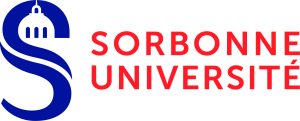
Keynotes
Keynote I:
Silent Channels: Scalable Messaging Resistant to Traffic Analysis
Prof. Darrell Long
University of California Santa Cruz, USA & The Institute for Defence Analysis
Keynote II:
SLICES, Your Scientific Instrument to support 6G System Research Innovation
Prof. Serge Fdida
Sorbonne Université
Abstract: The scientific community working on next-generation networks and systems increasingly lacks advanced, sustainable open tools to validate research, accelerate discovery through data sharing, and support reproducibility. The rapid pace of academic production—driven largely by data-intensive methods and the fast adoption of AI/ML—makes validation ever more challenging. SLICES-RI is the first initiative designed as a sustainable scientific instrument under the European ESFRI framework. SLICES-RI is intent-driven and supports the complete lifecycle of experimental research—from concept to reproducible deployment—by enabling experiments to be executed over its infrastructure through standardized blueprints, and by systematically collecting, archiving, and documenting all outputs following a rigorous methodology. A key challenge today lies in creating a seamless, continuous mechanism that can translate scientific excellence into competitive advantage at the pace of innovation. SLICES-RI addresses this by going beyond the mere provision of advanced technology—most importantly, it enables virtual access through an open data management infrastructure and well-defined workflows. We argue that the importance of data, scale and diversity, motivates the interest for building foundation models that will definitely have a strong transformative role in the design or open research infrastructures. SLICES-RI is the appropriate environment for building network foundation models, in particular for 6G. This talk will present the SLICES instrument, its community, academic engagement, and roadmap, highlighting its openness and its strong potential for collaboration.
Short Bio: Serge Fdida is a Professor with Sorbonne Université, Paris, France. His research interests are related to the future networked systems, technology and architecture (internet, 6G, …). He has been coordinating 11 research projects in Europe, notably pioneering the activity on federated Internet testbeds (he established PlanetLab Europe in 2007). Serge Fdida is an IEEE Fellow and an ACM Sigcomm Distinguished Scientist. Serge Fdida also developed a strong experience related to innovation and industry transfer: – co-founder of the Qosmos and Hopcast companies, – leadership role to the creation of the Cap Digital cluster in Paris, President of EIT Health France and coordinator of the 4EU+ European University. He steered the successful SLICES initiative, the first large-scale scientific instrument in Digital Sciences, that entered the ESFRI roadmap in 2021. He also developed a strong experience in the governance of Higher research and education organizations: Adviser ITC Department CNRS (2000-2005); Vice-President European affairs University P&M Curie (2014-2018); Vice-President International Development of Sorbonne Université (2018-2021).
Keynote III
Modelling and Analysis of Stratospheric Wireless Communications
Prof. Mohamed-Slim Alouini
KAUST
Abstract: High-Altitude Platform Stations (HAPS) are emerging as a key complement to LEO satellite mega-constellations, offering a scalable solution for global connectivity and bridging digital divides where terrestrial and satellite networks fall short. Operating from the stratosphere, HAPS leverage advanced beamforming and free-space optics (FSO) to deliver high-capacity and low-latency communications across diverse geographical areas. This talk explores the technological connectivity advancements driving HAPS by highlighting how intelligent beam management and optical feeder and inter-HAPS links can democratize broadband access and also provide unique solutions for disaster recovery, paving the way for a more connected world.
Short Bio: Mohamed-Slim Alouini was born in Tunis, Tunisia. He earned his Ph.D. from the California Institute of Technology (Caltech) in 1998 before serving as a faculty member at the University of Minnesota and later at Texas A&M University at Qatar. In 2009, he became a founding faculty member at King Abdullah University of Science and Technology (KAUST), where he is currently the Al-Khawarizmi Distinguished Professor of Electrical and Computer Engineering and the holder of the UNESCO Chair on Education to Connect the Unconnected. Dr. Alouini is a Fellow of the IEEE, OPTICA, and SPIE, and his research interests encompass a wide array of research topics in wireless and satellite communications. He is currently particularly focusing on addressing the technical challenges associated with information and communication technologies (ICT) in underserved regions and is committed to bridging the digital divide by tackling issues related to the uneven distribution, access to, and utilization of ICT in rural, low-income, disaster-prone, and hard-to-reach areas.
Technically Co-Sponsored by the IEEE Computer Society and IEEE France Section







